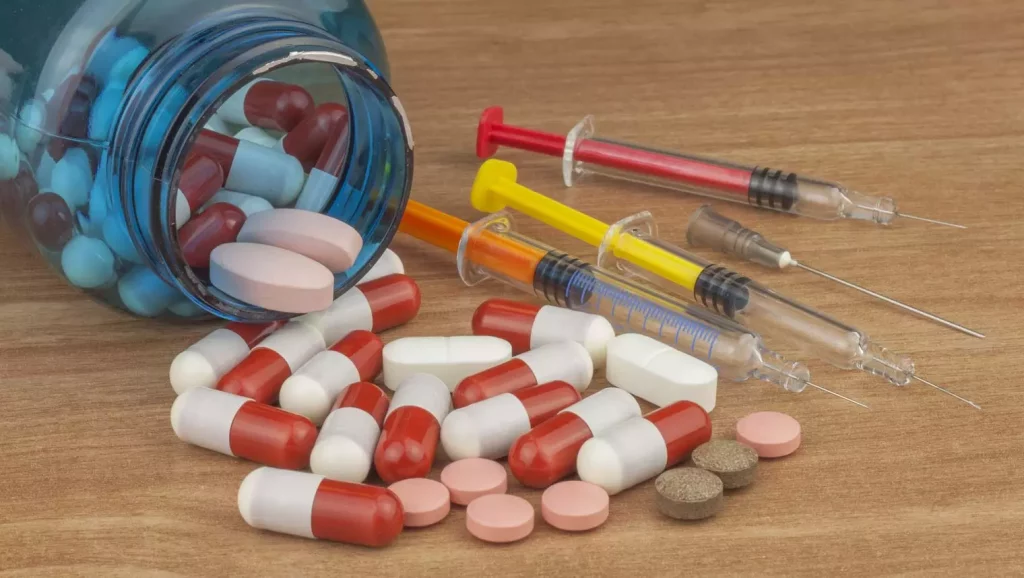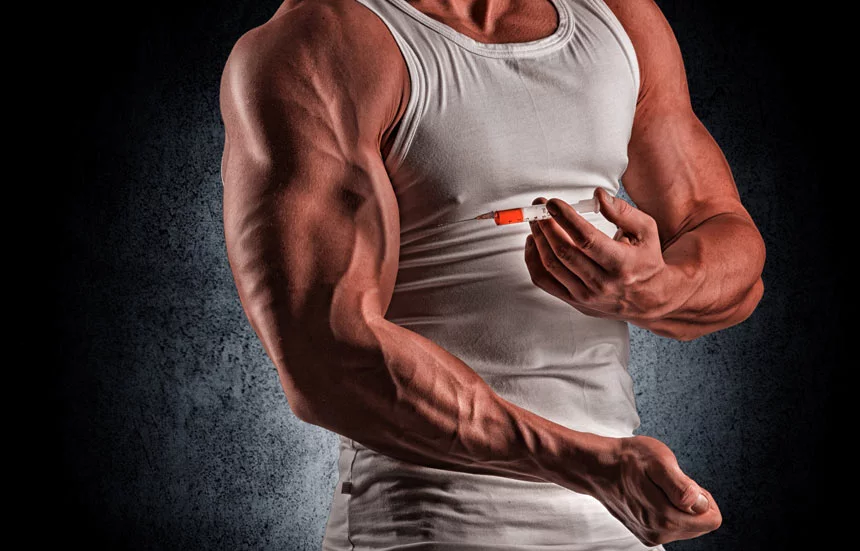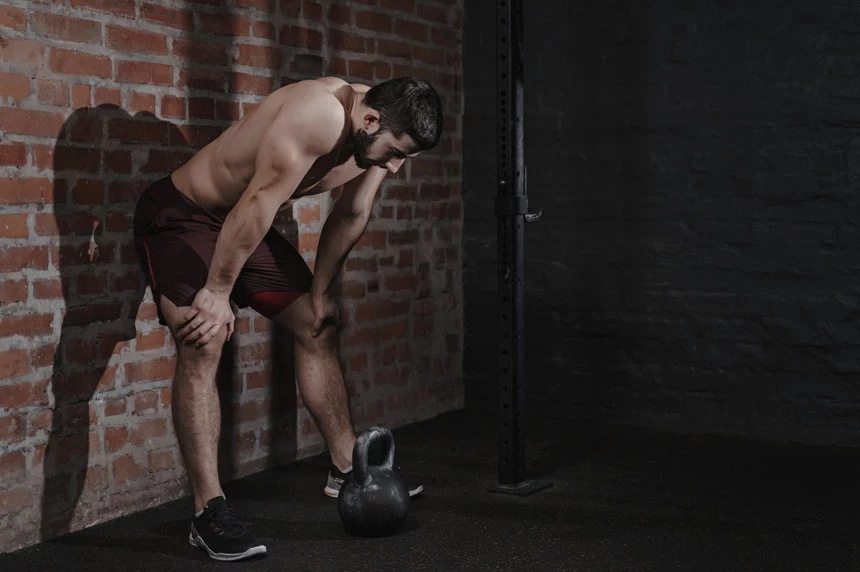What are Anabolic Steroids?
Table of Contents
- What are Anabolic Steroids?
- What are the Types of Steroids?
- How are Anabolic Steroids Addictive?
- Why Do People Abuse Anabolic Steroids?
- What are Common Methods of Steroid Abuse?
- Dangerous Drug Combinations With Anabolic Steroids
- What are the Signs of an Anabolic Steroid Addiction?
- Risks Factors for Addiction to Anabolic Steroids
- What are the Side Effects of Anabolic Steroids?
- Finding Steroid Addiction Treatment
- Get the Right Addiction Treatment Options for You Here
Anabolic-Androgenic Steroids, or Anabolic Steroids, are drugs that mimic the male sex hormone, testosterone. They help activate components of DNA in an individual’s muscle cells, which can boost protein production within them, helping to build muscle tissues and fibers. Steroid addiction results when tolerance and dependence develop.
This can result in an increase in muscle growth in very small amounts of time, as well as help to strengthen a person’s skeletal, immune, reproductive, and central nervous systems.
The name of Anabolic-Androgenic Steroids refers to the drug’s anabolic, or muscle-building properties, and androgenic, or masculinizing effects.
These can be used medically to treat a number of issues, such as triggering delayed puberty in adolescent individuals, improving hormonal imbalances, reversing muscular atrophy, and several more.
However, while they certainly have a variety of medical benefits, Anabolic Steroids also pose an extremely high risk for abuse. Unfortunately, the misuse of this drug is far more common than its medical application.
What are the Types of Steroids?
There are two main types of steroids, which are Corticosteroids and Anabolic Steroids. Corticosteroids are typically used to treat allergic reactions. Unlike Anabolic Steroids, these neither promote muscle growth, nor do they mimic testosterone.
A third, but less common, form of steroids are Mineralocorticoids, which are a synthetic version of Aldosterone, a chemical produced by the adrenal gland. As medications, these can help regulate blood pressure, plasma sodium, and potassium levels.
When they are abused, however, the adrenal gland is pushed into overdrive, resulting in Hyperaldosteronism, or elevated blood pressure; the exact opposite purpose of why these Steroids are prescribed.
Abusing these medications can actually result in death for individuals who initially may have been using them to treat high blood pressure, or other related issues. Some of the most commonly abused Steroid brands include:
- Anavar
- Anadrol
- Deca Durabolin or “Deca”
- Winstrol
- Trenbolone
- HGH
How are Anabolic Steroids Addictive?
In any incident where an individual is using a substance without or outside the specifications of a prescription, this behavior is considered drug abuse. One, of which, is quite common with steroid use.
When it comes to most addictive substances, these are usually associated with the production of euphoric highs, which is what makes individuals want to continue using them. Steroids, however, do not cause these addictive highs.
Rather, individuals who use steroids without a prescription, or who use more than their prescribed dosage, often develop an emotional dependency on it. This may occur due to an intense desire to continue feeling good about oneself or goal to achieve a specific appearance.
Anabolic steroids can be addictive due to their triggering of an obsessive-compulsive need to continue taking the drug in order to continue to look a certain way. These obsessive behaviors are extremely common with substance use disorders.
Furthermore, this drug can produce withdrawal symptoms in a person who decides to quit taking steroids. These can make it incredibly difficult to maintain abstinence from this drug, and can even cause additional medical issues to develop.
Why Do People Abuse Anabolic Steroids?
A person may choose to start abusing steroids for a number of reasons. However, the primary motivator for this form of drug abuse is a desire to change one’s physical appearance. This is particularly common amongst body-builders and athletic professionals.
When someone is exercising, their muscles may develop small tears in them. These tears, when healed, help make a person’s muscle tissue become stronger, which can help build muscle mass.
When using Anabolic Steroids, this healing process is sped up, allowing individuals to engage in more frequent and high-intensity work-out sessions. This activity, of which, allows them to build muscle and burn fat more quickly and easily.
Some of these individuals will also abuse steroids in order to gain an edge against their competition, as they are performance-enhancing drugs. Bodybuilders often use drugs to look bigger and stronger, as well as boost their confidence while competing.
Furthermore, many professional athletes may use steroids before a game in order to boost their aggression and energy levels. This is particularly common amongst football and baseball players looking to boost their athletic performance.
What are Common Methods of Steroid Abuse?
According to the National Institute on Drug Abuse (NIDA), there are several methods of Anabolic Steroid use, including taking them orally, injecting them directly into the muscles, or applying them to the skin as gels or creams.
When misused, these doses may be up to 10-100 times stronger than those prescribed to treat certain medical conditions. Anabolic Steroid abuse may also occur through one of several specific processes of taking this drug, including:
- Stacking
- Cycling
- Pyramiding
Stacking
The stacking process involves taking multiple different types of Steroids at one time, or mixing oral and injectable formulations of this drug together. This is done due to the idea that using a variety of Steroids or mixing different types of this drug can minimize its side effects.
However, there is no evidence suggesting that this is a valid assumption. Furthermore, individuals who stack their steroid use may have a greater risk of experiencing negative consequences from this substance abuse.
Cycling
Cycling refers to the process of taking steroids for a designated amount of time, followed by a period of abstinence from the drug. This period of usage may last between 6-12 weeks, and may involve using higher or lower doses, or different types of this drug.
The so-called following “off” cycles are believed to provide an individual’s body time to re-adjust to independent testosterone production, as well as limit organ damage caused by their drug abuse. This theory is also largely unproven and not backed by scientific study.
Pyramiding
Pyramiding is a method of taking Steroids that is believed to allow the body to adjust to high doses of this drug. At the start of an “on” cycle, Steroid users will begin taking a low dosage of this drug. They will then gradually increase this dose throughout the first half of this cycle.
By the middle of this period, an individual will be taking the maximum dosage of their abused steroid. Once this has been achieved, they will then begin to taper down this dosage; thus, creating a pyramid effect.
Dangerous Drug Combinations With Anabolic Steroids
If someone is engaging in Anabolic Steroid abuse, these individuals may have a greater likelihood of developing an additional drug and alcohol dependence. Furthermore, these steroids can have a detrimental effect on the highs produced by other drugs.
The diminishing of these euphoric effects may cause individuals to increase the frequency and extent of their other forms of substance abuse.
Unfortunately, this can not only put them at a higher risk of experiencing adverse consequences from their substance use, but may make them more susceptible to overdose, as well.
Some of the most common substances abused alongside Anabolic Steroids include:
Stimulants, such as Cocaine and Adderall, are also frequently used by those who abuse Anabolic Steroids, as this simultaneously boosts energy and reduces hunger levels. However, this combination can also make individuals more aggressive, as well as cause heart problems.
Furthermore, abusing alcohol while taking steroids can also increase aggression, and may make individuals more prone to engaging in violence or committing crimes.
What are the Signs of an Anabolic Steroid Addiction?
There are several signs a person can look out for when trying to determine if someone may be addicted to Steroids. The most common of these include drastic and often unexplainable mood swings, as well as increased aggression levels – popularly referred to as “roid rage.”
Long-term Steroid abuse can also produce extreme personality changes, which may become increasingly more noticeable over time. Other common signs of a potential addiction to Anabolic Steroids include:
- Acne
- Rapid weight gain and muscular growth
- Breast development in men
- Paranoia
- Hyperactivity
- Facial hair growth in women
Warning Signs of a Topical Steroid Addiction
Topical Steroid addiction is much harder to pinpoint than an Anabolic Steroid addiction. This form of substance abuse primarily occurs in individuals who have been prescribed medical creams, such as Cortisone, for skin conditions.
While in many cases this is a necessary step to remedy these conditions, a person may choose to continue using these ointments to maintain the appearance of healthier and younger skin. However, this long-term misuse can result in withdrawal symptoms upon no longer using a topical steroid.
A condition referred to as Topical Steroid Withdrawal, or TSW, side effects of this can include red and itchy skin, broken blood vessels, acne, adrenaline suppression, and more. Similarly to any withdrawal, this can cause individuals to continue using to avoid these effects.
While TSW can be an incredibly problematic issue to deal with, the remedy is simply “feeding” the skin with nutrients to promote a quick recovery. This may include a diet packed with foods containing Vitamin B6, Magnesium, Zinc, and other natural vitamins.
Risks Factors for Addiction to Anabolic Steroids
Anabolic Steroids, as with most drugs, have a very wide, non-discriminatory range of users. Bodybuilders and competitive athletes are by far those who are most prone to developing this form of addiction.
However, individuals who struggle with dermatology or blood pressure issues may also have an increased risk of developing this type of substance use disorder in the event that they abuse their previously prescribed medications.
Individuals with a history of substance abuse are also at a higher risk of abusing Anabolic Steroids, as well as those with certain mental health disorders. In particular, people struggling with body dysmorphia, or the obsessive fixation on perceived flaws in one’s appearance.
These individuals may find themselves continuously using Steroids in order to achieve an idealized body image, even after having achieved and passed their original goal.
In any of these cases, this risk can be increased even more if these individuals find themselves surrounded by people who further promote their drug use. This may include:
- Athletes being pressured to use steroids in order to increase or maintain performance levels.
- Bodybuilders surrounding themselves with other people who use steroids to enhance their appearance and strength, and feeling compelled to maintain a competitive edge by also using them.
- Individuals struggling with body dysmorphic disorder who may live or have regular contact with someone who regularly criticizes their appearance.
Furthermore, while steroid abuse is not limited to a specific sex, this form of substance abuse is particularly common amongst men. According to NIDA, the majority of individuals who misuse steroids in the United States are male non-athlete weightlifters between the ages of 20 and 30.
What are the Side Effects of Anabolic Steroids?
One of the most concerning aspects of steroid abuse is that the resulting effects of this addiction is often the exact opposite of the intended results that caused an individual to begin using in the first place.
For example, Mineralocorticoids, which help with blood pressure regulation, can end up further spiking an individual’s blood pressure when abused. Furthermore, Anabolic Steroids taken as performance and muscle enhancers may cause lethargy and even weight gain when misused.
Topical Steroids, when not used as intended or prescribed, can also greatly exacerbate skin problems, and even destroy skin cells.
Steroid abuse has also been found to increase a person’s risk of having a heart attack or stroke, as well as developing liver cancer or kidney disease. Other possible side effects of misusing Anabolic Steroids include:
- Vomiting blood
- Jaundice, or yellowing of the eyes and skin
- Nausea
- Abdominal pain
- Baldness
- Insomnia
- Blood clots
- High cholesterol
- Severe acne
- Oily skin
- Hair loss
- Liver disease, tumors, and cysts
- Kidney failure
- Heart disease
- Mood swings
- Irritability and aggression
- Depression and suicidal tendencies
- High blood pressure
- Infertility
- Excess facial or body hair
- Stunted growth in adolescents
- Risk of spreading infectious diseases through unsterile injections
Long-term steroid misuse can also cause severe mental health and behavioral issues, including a drastic increase in violent behaviors. Several cases of domestic violence, theft, and even murder have been linked to a person’s abuse of steroids.
Effects of Steroid Abuse on Men
While men and women may experience several of the same effects caused by abusing steroids, the hormonal imbalances this drug can produce may also result in a number of side effects specific to these individuals.
Side Effects of Steroids in Males
An increase in testosterone levels in men can result in several issues that may make the muscle-building properties of Anabolic Steroids less appealing. These may include:
- Enlarged breasts
- Shrinking of the testicles
- Low sperm count
- Sexual dysfunction
- Prostate cancer
- Infertility
Effects of Steroid Abuse on Women
As discussed, Anabolic steroids mimic testosterone, which is the primarily male sex hormone. Thus, increasing the amounts of this chemical in a female’s body can cause several issues, including:
- Changes to the body and facial hair
- Decreased breast size
- Enlarged clitoris
- Loss of hair and baldness
- Deepening of the voice
- Irregular menstrual cycles
- Weight gain
- Neurological complications
- Shaking of the hands and body
Aside from the enhancement or development of several masculine traits, women may also be at risk of experiencing complications with their fertility. This may include harm caused to fetal health in pregnant women.
Finding Steroid Addiction Treatment
When it comes to someone who is addicted to steroids, seeking out professional substance abuse treatment options is strongly recommended. This is because this substance addiction can have a particularly unpleasant withdrawal period, especially when combined with other drugs.
Thus, a professional treatment provider will be able to provide effective addiction support and recovery resources throughout the entirety of an individual’s treatment process.
Steroid addiction treatment may include participating in a medically supervised detox process, or an inpatient or outpatient treatment program.
Furthermore, behavioral therapy and managed medications may also be recommended, particularly for those struggling with co-occurring disorders, whether mental health or medically-related.
Medical Detox
Medical detox programs are a form of addiction treatment that allow individuals to be gradually weaned off of an abused substance under the constant supervision of a clinical professional. This can make enduring the withdrawal period of an abused substance easier and safer.
This treatment process may also involve diet plans, along with the provision of certain medications that can help manage or prevent more intense symptoms, as well as drug cravings.
Individuals who participate in a detox program, rather than attempt to quit using steroids on their own, are not only more likely to have a successful recovery, but maintain long-term abstinence, as well.
Anabolic Steroid Withdrawal Symptoms
Individuals may experience withdrawal symptoms of varying intensity and number while stopping usage of Anabolic Steroids, including:
- Fatigue
- Restlessness
- Decreased appetite
- Difficulty sleeping
- Low sex drive
- Steroid cravings
- Joint pain
Individuals may also experience intense depressive symptoms during this period, which may result in their development of suicidal ideations and behaviors; one of the main reasons why the constant supervision provided by a detox program is so crucial during the recovery process.
Inpatient Treatment
Inpatient, or residential, treatment centers will require clients to live at a rehab center for the duration of their recovery process, which can last between 30-90 days.
As the most highly structured addiction recovery option, those struggling with a severe addiction to steroids will highly benefit from seeking care at an inpatient treatment center.
These rehab facilities may provide a number of services, including behavioral therapies, nutritional counseling, relapse prevention support, vocational and social skill training sessions, and several other recovery support options.
Outpatient Treatment
Outpatient care is a type of treatment program that does not require clients to live at a treatment facility. These programs serve a flexible and equal-opportunity means of helping individuals to overcome their addiction and re-adjust to independent living.
Outpatient treatment options tend to be more cost-effective, and are best suited for those who are unable to take time off from their personal duties or jobs. These may also be a person’s next step in their recovery process after completing initial treatment at an inpatient rehab center.
Get the Right Addiction Treatment Options for You Here
If you or a loved one is struggling with an addiction to steroids, this can be an incredibly difficult and isolating experience. But you are not alone, and help IS available.
At Find Addiction Rehabs, we are dedicated to connecting people like you with addiction treatment centers and recovery programs that can meet all of your or your loved ones’ personal care needs.
With our hotline available 24/7, one of our representatives is always ready to provide recovery resources and support, anytime you need them. So don’t wait; call today, and let us help you get started on the path to recovery, where you can truly achieve a happier, healthier, and sober you!
Nicole Rogers is an experienced and accomplished writer with special interests in the fields of Anthropology, English, and behavioral health, and has written countless articles for newspaper publications, institutional research journals, and Find Addiction Rehabs.
Her alma mater is Florida Atlantic University in Boca Raton. Nicole hopes to spread awareness of and combat the stigmatization surrounding addiction and substance abuse treatment through her writing and work in the field.



